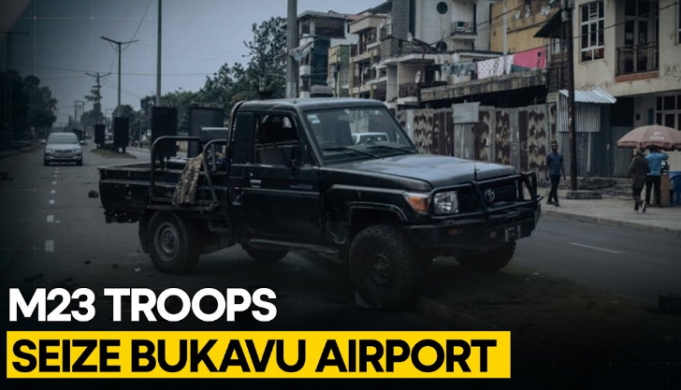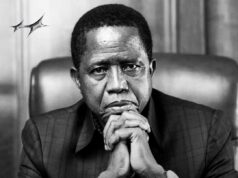“M23’s Rapid Advance: What’s Next for Eastern Congo?
The Democratic Republic of Congo (DRC) is once again witnessing an escalation of conflict as the M23 rebels, allegedly backed by Rwanda, have taken control of two of the largest cities in the eastern region Goma and Bukavu. This development has raised serious concerns about regional stability, humanitarian conditions, and the potential for wider conflict.
The Background of the M23 Rebellion
The March 23 Movement (M23) is a rebel group that emerged in 2012, composed mainly of former soldiers from the Congolese army. The group claims to be fighting against corruption and poor governance in the DRC, though international observers believe its activities are influenced by regional political and economic interests.
M23 was initially defeated by Congolese and United Nations forces in 2013, forcing many of its fighters to seek refuge in neighboring countries, particularly Rwanda and Uganda. However, the group re-emerged in recent years, intensifying its military operations and expanding its territorial control.
The Capture of Goma and Bukavu
Goma, the capital of North Kivu province, fell into the hands of M23 rebels after weeks of intense fighting with government forces. The capture of this strategic city signified a major setback for the Congolese military. Following the occupation of Goma, M23 advanced southwards, seizing Bukavu, the capital of South Kivu province.
The fall of Bukavu, a key trade and transport hub, has heightened tensions between the DRC and Rwanda. While the Rwandan government denies allegations of supporting M23, the DRC accuses its neighbor of fueling the rebellion for political and economic gains.
Humanitarian Crisis and Civilian Impact
As the conflict escalates, the humanitarian situation in the region is rapidly deteriorating. Thousands of civilians have been displaced, seeking refuge in overcrowded camps and neighboring regions. Many have lost access to food, clean water, and medical care due to the ongoing violence.
Human rights organizations have reported cases of mass displacement, looting, and violence against civilians. Schools, hospitals, and markets have shut down, leaving local communities in a state of fear and uncertainty. Aid agencies are struggling to provide relief due to security challenges posed by the conflict.
Regional and International Response
The international community has strongly condemned the rebel advance, calling for an immediate ceasefire and dialogue. The African Union, the United Nations, and regional leaders have urged both the DRC and Rwanda to engage in diplomatic efforts to resolve the crisis peacefully.
The Congolese government has also appealed for military assistance from neighboring countries, including Uganda and Burundi, to counter the rebel offensive. Meanwhile, the United Nations peacekeeping mission in the DRC (MONUSCO) has increased its patrols and is working to protect civilians in affected areas.
Potential Consequences and the Road Ahead
The capture of Bukavu and Goma by M23 rebels could have far-reaching consequences for the stability of the Great Lakes region. If the conflict continues to escalate, it may lead to further displacement, economic instability, and even a broader regional war.
Efforts to broker peace must be prioritized to prevent further suffering among civilians and restore stability in eastern Congo. The role of international mediators, regional cooperation, and diplomatic engagement will be crucial in addressing the underlying causes of the conflict and ensuring lasting peace.
The future of the M23 conflict will likely depend on several key factors:
- Military Developments – The DRC government and its allies, including regional forces from Uganda and Burundi, may attempt a counteroffensive to reclaim lost territories. The effectiveness of this response will determine whether M23 continues its advance or faces setbacks.
- Diplomatic Efforts – The African Union and United Nations are pushing for negotiations between the DRC and Rwanda. If successful, diplomacy could lead to a ceasefire or peace talks to address the rebels’ demands and regional tensions.
- International Pressure on Rwanda – If more evidence emerges linking Rwanda to M23, international sanctions or political pressure could be imposed on Kigali, forcing a shift in its involvement.
- Humanitarian Crisis – The worsening refugee situation could attract more global attention and intervention, possibly leading to increased UN peacekeeping efforts or emergency aid missions.
- Long-Term Stability – Even if M23 is contained, the deeper issues such as ethnic tensions, weak governance, and resource struggles must be addressed to prevent future rebellions.




